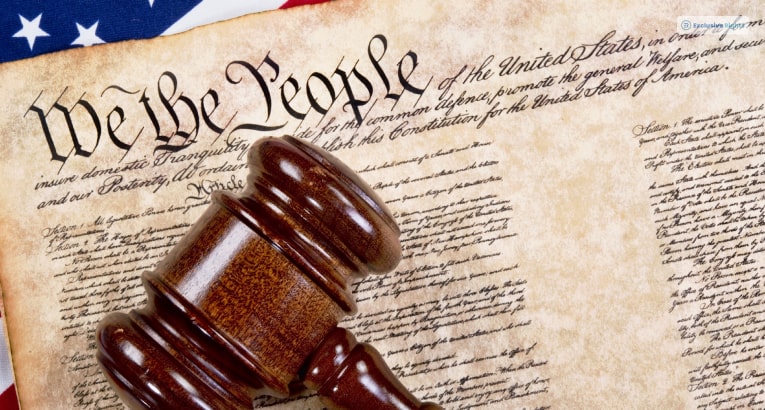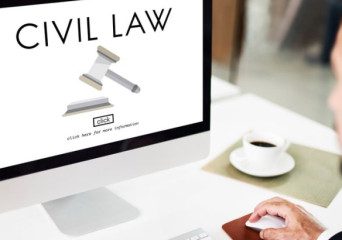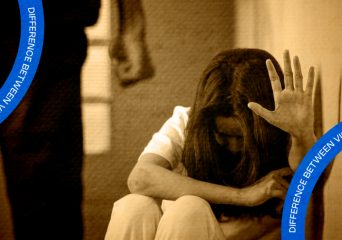
Table Of Contents
- What Is Meant By Civil Liberties?
- Your Personal Space
- The Bill of Rights
- Freedom of Expression
- Freedom of Religion
- Right to Privacy
- The Right to a Fair Trial
- Balancing Act
- What Is Meant By Civil Rights?
- The Rights We Share
- The Fight for Equality
- Legal Protections
- Education, Employment, and Voting
- Struggles and Achievements
- Balancing Act
- Civil Rights Vs Civil Liberties, Which Is More Important?
- Civil Rights - The Heroes of Equality
- Civil Liberties - The Guardians of Freedom
- The Balancing Act
- The Importance of Equality
- The Value of Personal Freedom
- Final Words
A Guide To Understand The Difference Between Civil Rights vs Civil Liberties
Okay, folks, let’s dive into the fascinating world of civil rights vs civil liberties. These two terms are often used interchangeably, but there’s a distinction worth exploring. We’re here to help you unravel that difference in a way that’s clear and engaging.
What Is Meant By Civil Liberties?

Okay, let’s get down to the nitty-gritty of civil liberties. You might have heard this term tossed around a lot, especially when people are talking about their rights and freedoms. But what does it actually mean?
Your Personal Space
Imagine a big bubble around you – that’s your personal space. Civil liberties are like the magical forcefield that protects this space from government intrusion. They’re the rules and rights that guarantee your personal freedom and privacy.
The Bill of Rights
Here’s the thing – civil liberties are often tied to the U.S. Constitution, particularly the Bill of Rights. These are the first ten amendments, and they’re like a treasure chest of freedoms. They include goodies like freedom of speech, the right to a fair trial, and protection against unreasonable searches and seizures.
Freedom of Expression
Have you ever had something on your mind and just had to shout it out? That’s your freedom of speech at work. Civil liberties give you the right to express your opinions, beliefs, and ideas without the government getting in the way.
Freedom of Religion
Whether you’re a Jedi, a Jedi Knight, or anything in between, your civil liberties also protect your right to practice your religion. It’s all about ensuring that you can worship (or not worship) as you please.
Right to Privacy
Civil liberties are your privacy, superheroes. They ensure that your personal stuff, like your home or your personal information, remains off-limits to the government unless they have a darn good reason to poke around.
The Right to a Fair Trial
Imagine getting in trouble and facing a legal showdown. Your civil liberties guarantee that you’ll have a fair shake in court. This means a chance to defend yourself, a trial by a jury of your peers, and protection against double jeopardy.
Balancing Act
Now, here’s the thing – civil liberties are super important, but they’re not absolute. They have limits, and those limits are often determined by the famous “balancing test.” It means that in some situations, the government might restrict your liberties if it’s for a compelling reason, like public safety.
So, there you have it! Civil liberties are like your personal freedom toolkit. They’re the rights and protections that ensure you can speak your mind, practice your religion, and have your privacy respected. They’re the guardians of your personal space and individual freedoms, and they’re a cornerstone of many democratic societies.
What Is Meant By Civil Rights?

Civil rights – you’ve probably heard this term thrown around quite a bit, especially in discussions about equality, discrimination, and justice. But what’s the deal with civil rights? Let’s unravel this in a way that’s engaging and crystal clear.
The Rights We Share
First things first, civil rights are the rights that we all share as members of a society. These are the rights that protect individuals from discrimination and ensure that everyone is treated equally under the law. In a nutshell, they’re the foundation of fairness.
The Fight for Equality
Civil rights are like the soldiers in the army of equality. They’re all about fighting against discrimination based on certain characteristics, like race, gender, religion, and national origin. They aim to level the playing field and ensure that nobody faces unfair treatment because of who they are.
Legal Protections
Now, here’s the thing – civil rights are not just nice ideas. They are backed by laws, rules, and regulations. They’re enforceable through government agencies and courts. For example, the Civil Rights Act of 1964 is a powerful piece of legislation that prohibits discrimination in employment based on factors like race, color, religion, sex, or national origin.
Education, Employment, and Voting
Civil rights touch nearly every aspect of our lives. They guarantee that every child has access to a quality education, regardless of their background. They ensure that individuals have equal opportunities in the job market and that they can exercise their right to vote without facing discrimination.
Struggles and Achievements
The history of civil rights is filled with stories of struggle and triumph. It includes the Civil Rights Movement in the United States, led by heroes like Martin Luther King Jr., who fought for the end of racial segregation. The fight for civil rights is ongoing and has expanded to address issues like gender equality and LGBTQ+ rights.
Balancing Act
While civil rights are vital, there can be a bit of a balancing act. That’s because, in some situations, individual rights might come into conflict with public interests. In those cases, the law often weighs the rights of the individual against the greater good.
In a nutshell, civil rights are the safeguards that protect us from discrimination and ensure that every individual has a fair shot at life, liberty, and the pursuit of happiness. They’re the laws and regulations that make sure nobody is treated unfairly because of their race, gender, or other characteristics.
Understanding civil rights is crucial in appreciating the principles that underpin many democratic societies, as they promote equality and justice for all. It’s not just a legal term; it’s a cornerstone of the pursuit of a fair and inclusive society.
Civil Rights Vs Civil Liberties, Which Is More Important?

Ah, the age-old debate: civil rights versus civil liberties. It’s like trying to choose between chocolate and vanilla ice cream – both are delicious, but they offer different flavors. Let’s dive into this discussion in a way that’s as engaging as choosing your favorite dessert.
Civil Rights – The Heroes of Equality
Civil rights are like the champions of equality. They’re all about ensuring that everyone is treated fairly and without discrimination. These rights protect individuals from unfair treatment based on their race, gender, religion, or national origin.
Civil Liberties – The Guardians of Freedom
On the other hand, civil liberties are like the guardians of personal freedom. They’re the rights that protect you from government overreach. These are the freedoms of speech, religion, and privacy – they ensure that the government can’t stick its nose where it doesn’t belong.
The Balancing Act
Now, here’s where the plot thickens. civil rights vs civil liberties sometimes clash. In some situations, protecting one person’s rights might encroach on another’s. For instance, the right to free speech might clash with the right to be free from discrimination and hate speech. It’s a delicate balance.
The Importance of Equality
Civil rights are the heartbeat of a just and equal society. They’re the rights that prevent discrimination and level the playing field. Without civil rights, society risks perpetuating injustice and inequality.
The Value of Personal Freedom
Civil liberties are the heart and soul of individual freedom. They protect your right to express yourself, practice your religion, and keep your personal life private. Without civil liberties, the government might overstep and infringe on your personal space.
So, which is more important? It’s a bit like asking if you prefer the sun or the moon. The truth is, we need both. civil rights vs civil liberties are like two sides of the same coin. They work together to create a balanced and just society.
Civil rights ensure that everyone has a fair shot at life, regardless of their background. Civil liberties protect your personal space and individual freedoms from government intrusion. It’s not a matter of choosing one over the other; it’s about maintaining the equilibrium.
In the grand scheme of things, civil rights vs civil liberties are equally essential. They’re the foundation of many democratic societies, working together to create a world where everyone has an equal opportunity and individual freedoms are preserved.
Final Words
Civil liberties are the bedrock of our individual freedom, safeguarding our right to self-expression, religious practice, and privacy. They are the guardians that prevent the government from overreaching and invading our personal space.
But when it comes to choosing between civil rights vs civil liberties, it’s like picking between the sun and the moon – both are equally important. Civil rights ensure that every individual, irrespective of their background, has a fair chance at life. On the other hand, civil liberties shield us from the government’s infringement on our individual freedoms and personal space. In essence, they are two sides of the same coin that work towards creating a fair and just society.
It’s crucial to maintain a balance between civil rights vs civil liberties, as they are both fundamental to the foundation of any democratic society. Together, they create a world that upholds the principles of equality, justice, and personal freedom. So, let’s cherish and safeguard our civil rights vs civil liberties, for they are the cornerstones of a thriving and harmonious society.
Read Also:






